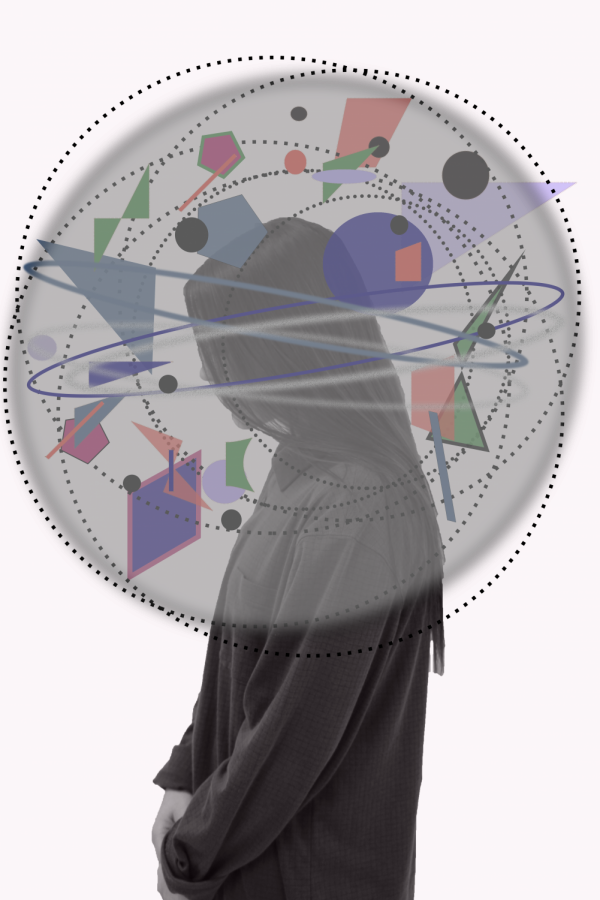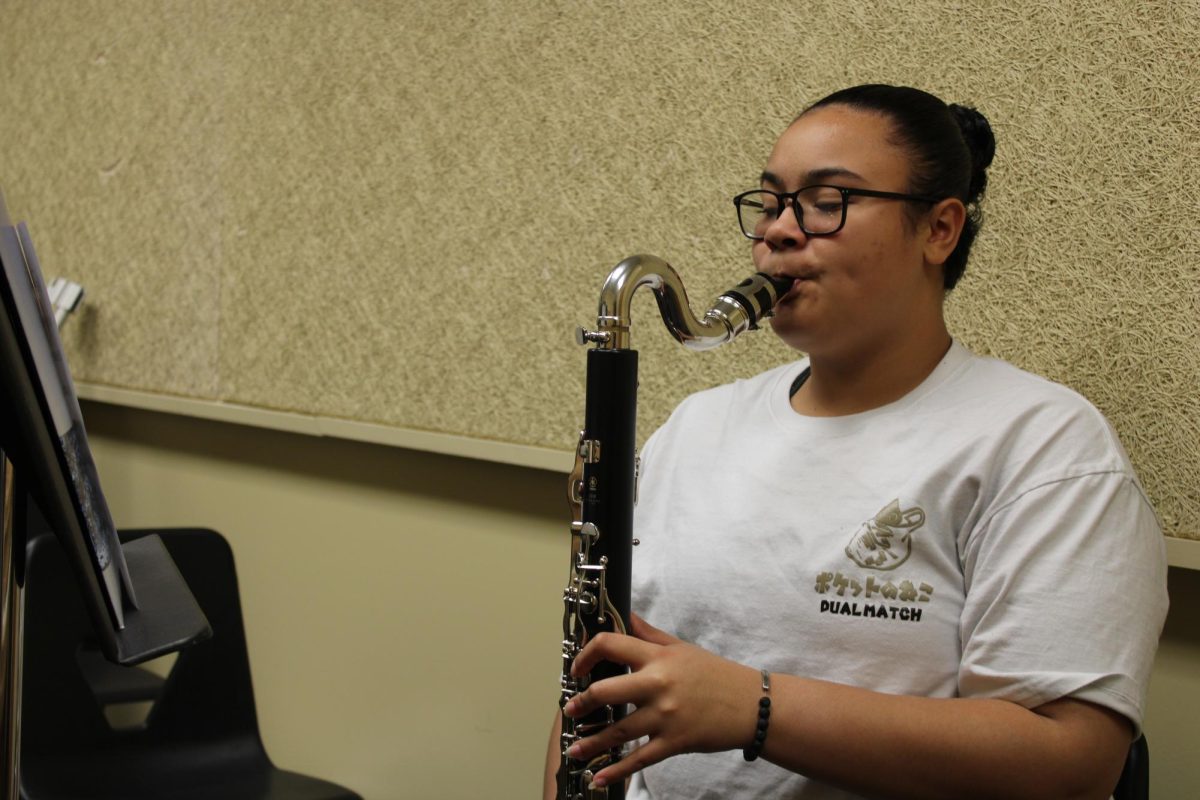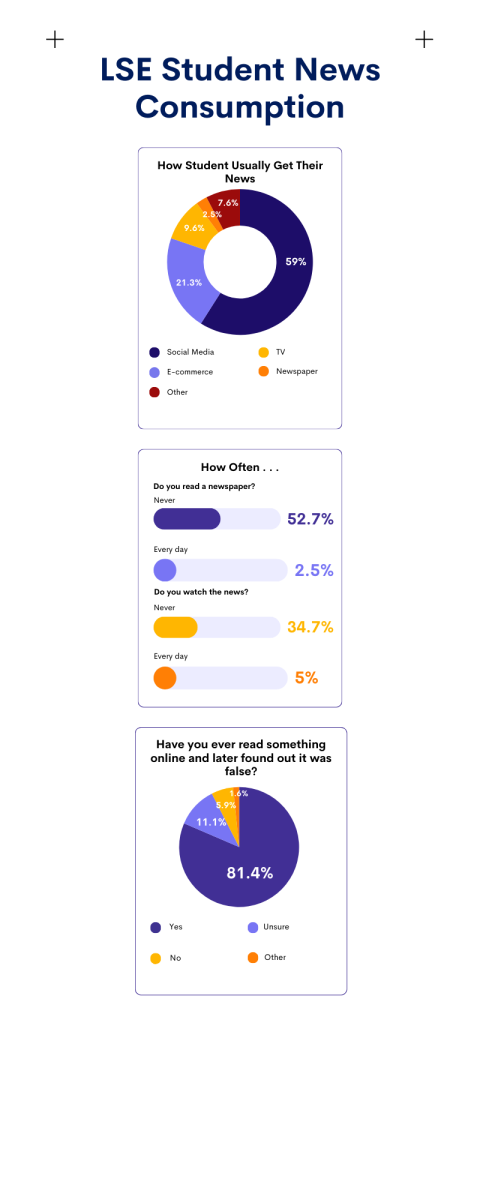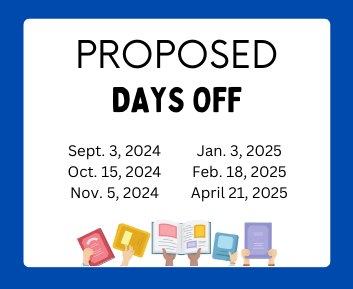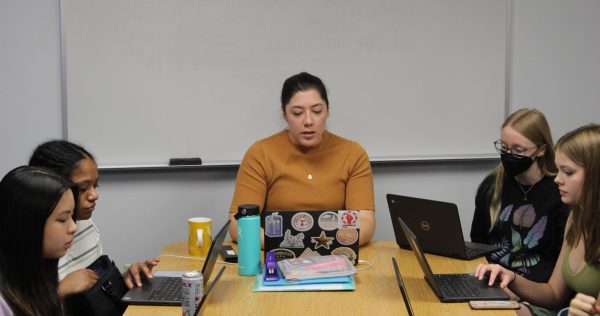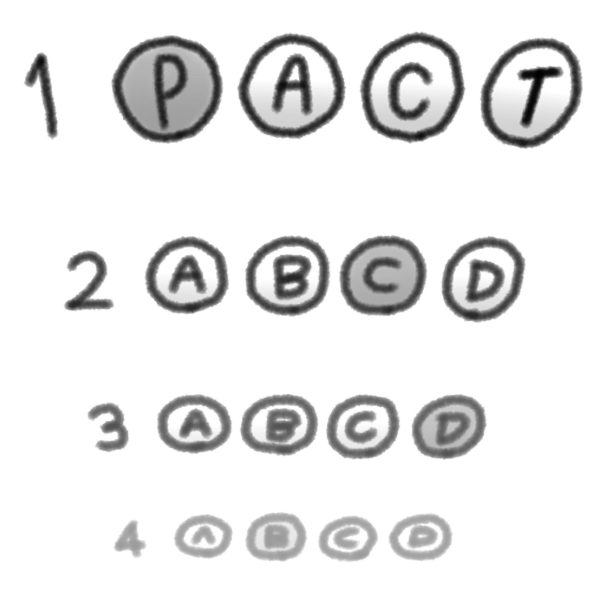The truth about anxiety: The feeling of anxiety is different from having an anxiety condition; Clinical anxiety interferes with everyday life, dulling the things one once enjoyed
Photo and graphic editing done by Sophia Merritt
March 3, 2020
Your hands become clammy and drenched with sweat as your heart begins to pound at what feels like a million miles per hour, and you’re overcome with a churning in your stomach as you prepare for your next challenge. This is anxiety, or what it feels like to become anxious. Everyone has faced the feeling of being anxious about something at least one time in their life.
“It’s natural for new, unfamiliar or challenging situations to prompt feelings of anxiety or nervousness. Facing an important test, a big date or a major class presentation can trigger normal anxiety,” an article titled, “Anxiety Disorders,” by KidsHealth stated. “Although these situations don’t actually threaten a person’s safety, they can cause someone to feel threatened by potential embarrassment, worry about making a mistake, fitting in, stumbling over words, being accepted or rejected or losing pride.”
While it is normal to have feelings of anxiety from time to time, it is completely different from having a diagnosed anxiety disorder. It is stated that a mental disorder, for example Generalized Anxiety Disorder, is something that interferes with someone’s day-to-day life.
“Someone with generalized anxiety may worry excessively about school, health or safety of family members and the future,” KidsHealth said. “They may always think of the worst that could happen.”
Along with the constant worry that comes with an anxiety disorder, it is also very common for there to be physical symptoms as well. These usually are more severe than those that come with the normal amount of anxiety that people feel. Some of these include chest pain, headaches, tiredness and vomiting. Usually, due to these symptoms, a person might miss school, work or other activities, and it can cause them to feel like a burden on others. Generally, these feelings are out of their control.
The National Institute of Mental Health states that these symptoms may vary depending on the anxiety disorder, but that doesn’t mean that if you have one or two of the said symptoms that you suffer from an anxiety disorder. This is where teens tend to confuse their thoughts and feelings on the subject.
Sophomore Elise Anderson, who has experienced feelings of anxiety herself, said that while these feelings of being anxious are normal, the severity of a disorder is not. She also said that people don’t realize that others around them get a feeling of being anxious as well.
“A lot of students don’t know that everybody is feeling anxious and it’s completely normal to feel overwhelmed, but it’s not normal to have the condition,” Anderson said.
The word “anxiety” gets thrown around so casually in school and on social media that it is hard to remember the logistics of the severity of what it means to have an actual anxiety disorder. It has almost become a trend to have these disorders or things such as panic attacks because so many of our peers state that they have it. It is the way that we relate and try to fit in, and it is thought that it will get students more attention from those around them.
“It can be taken too far and it’s really serious. There’s a stereotype that comes with anxiety and some people feed off of that and want that attention for themselves,” Anderson said. “Which is why I think some people say they have more anxiety than is actually there.”
What a lot of students don’t take into account is how those around them might feel if they do actually suffer from an anxiety disorder. It is thought to go one of two ways; Either those who do suffer will feel relieved that they are not alone in how they feel and can relate to those around them, or they will feel like what they are dealing with isn’t taken as seriously as it should be. With things like social media and the internet, it has become so easy to just assume that one has a disorder based off of a list of symptoms that they find. With this newer access to free advice and knowledge, it can be either beneficial or detrimental to the reader.
Lincoln Southeast High School counselor Kelly Winter said that due to this greater access of information, it has become easy for those readers and followers to misdiagnose themselves because they don’t necessarily know whether the information they find is right or wrong.
“I think people have greater access now than they did before, whether it’s the right information or wrong information,” Winter said. “[People] just Google it and then they could misdiagnose themselves.”
The internet hasn’t proven to be all bad when it comes to doing your own medical research. Morgan Young, a social worker at LSE, said that while one may have the tendency to misdiagnose themselves with a disorder, the internet also proves to be a tool for those who are struggling.
“[Internet] access can help you determine whether or not you think [you should] seek out a doctor’s help,” Young said.
According to the Anxiety and Depression Association of America, one-third of those suffering from an anxiety disorder receive treatment while the other ⅔ don’t, even though they are highly treatable. One of the reasons for this is the taboo that surrounds having a mental disorder, but it is also because people feel that feeling the way they do is the new norm and not as severe as it really is. An example of this can be panic attacks. Panic attacks are very serious and are defined by the Diagnostic and Statistical Manual of Mental Disorders (DSM-5) as either expected or unexpected panic attacks.
Senior Grace Usher plans to study psychology in college and has done a lot of research on what a panic attack is. She said that it is more violent than that of an anxiety attack and is more severe.
“A panic attack is more of a matter between life and death,” Usher said.
A lot of the time, students will say they had a panic attack over a test or something as little as a TV show ending that they didn’t like. It is more likely that what they actually experienced was an anxiety attack, which is when someone is overcome with the anxiousness of a situation. A panic attack causes one to feel detached from the world and like all the worst possible things could happen in that moment. It is also more common for them to happen out of nowhere, when an anxiety attack is triggered by a stimulus in that moment. While students say they have experienced panic attacks over little things that happen in their life, there is no true way that someone can understand what a panic attack is and how it is different from an anxiety attack until they actually experience it themselves.
If one does experience something similar to a panic attack, the LSE nurse has precautions that they take to make sure that their students are safe.
“If that happens, we get the nurse involved,” Winter said. “She’s taking blood pressure, checking all their vitals.”
This is in place to make sure that all students feel well taken care of when they are experiencing physical signs of stress. That ranging from mild to extreme symptoms.
So whether people label themselves with disorders has to do with the fact that they want attention or that they are truly uneducated, it is something that we need to use in a less casual way. In reality, according to the Anxiety and Depression Association of America, only about 8 percent of children and teenagers experience an anxiety disorder before the age of 21. This is a very small amount compared to those that state that they have anxiety on a day-to-day basis. One way that we can prevent this misunderstanding is to remain educated on the topic and be more conscientious about how we say things regarding our mental health.
Liz Rock, a counselor at LSE, said that the small differences in a statement can change the meaning of a sentence and that it all comes down to the semantics of the sentence.
“There’s a difference between ‘I have anxiety,’ and ‘I’m experiencing or feeling anxiety,’ because I feel like when I hear ‘I have anxiety,’ to me, that means I have a problem with anxiety and that’s different than, ‘Right now I’m feeling anxious,’” Rock said.
So while these terms can get confused, it really is about us working to make sure that we aren’t generalizing these disorders and that we are aware of the severity of actually having them. That being said, we don’t want students to think that their feelings are invalid in any way. LSE counselors and social workers want students to know that even if they aren’t suffering from a diagnosis, that doesn’t mean that they care less about how they are feeling. Counselors and social workers are here to help students with normal day-to-day stressors.
“Just because you don’t have a diagnosis of depression or anxiety doesn’t mean that we aren’t always willing to help you and that we don’t take your symptoms and how you’re feeling seriously,” Young said.

